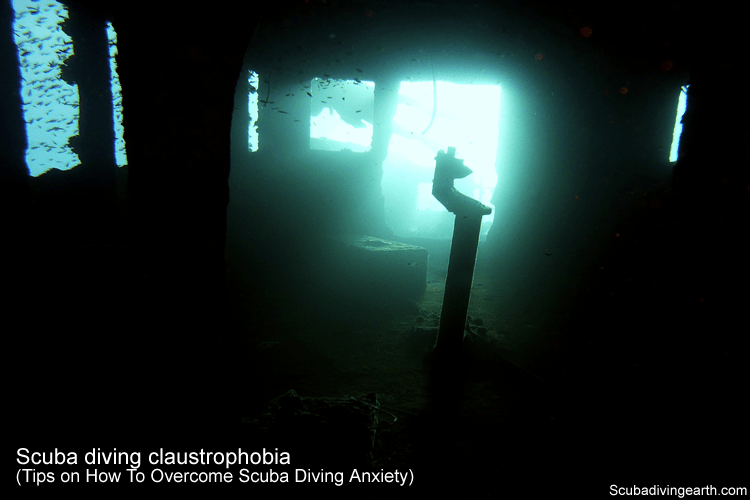
Those who suffer from severe claustrophobia may need to avoid scuba diving all together. But this will depend on the severity of your reaction to what triggers your claustrophobia and whether you’ve taken steps to treat it. So the question is: Can you scuba dive if you are claustrophobic and how can it avoided?
How you avoid scuba diving claustrophobia is to allow time to get accustomed to the feeling of being underwater. Claustrophobia is a situational phobia triggered by an irrational and intense fear which in scuba diving can be caused by wearing a mask and by the depth and pressure of the water.
The best way to do more diving, and to hopefully overcome your scuba diving claustrophobia, is to book yourself on a scuba diving liveaboard. You can check the latest and best deals on liveaboards using the following:
Scuba divers who suffer from claustrophobia should be aware of:
- Entering an overhead environments which may result in an underwater panic attack.
- Avoid coral swim-throughs.
- Don’t enter caves or attempt cave diving.
- Wreck penetration dives should not be on your list of dives unless you get treatment for your claustrophobia.
What is claustrophobia?
Claustrophobia is an extreme or irrational fear of confined spaces.
It’s normal to fear being trapped when there is a genuine threat of confinement. But as with all phobias, people who suffer from claustrophobia become fearful where there’s no obvious danger or threat.
The fear of confined spaces or claustrophobia can manifest in people to different extremes. For some it might be a mild anxiety or a feeling of being uncomfortable. For others the anxiety can be extreme and bring on a panic attack.
The confined spaces can include caves, tunnels, lifts and specific to this article, wearing a mask when scuba diving, or swimming into a wreck or a cave underwater.
How common is claustrophobia in scuba diving?
Claustrophobia was one of the top fears people have when first learning how to scuba dive. The main problem claustrophobic sufferers have is with wearing a mask.
Scuba mask wearing can make newbie divers feel like they’ve had their face confined in a small space. But the reality is they are not confined at all.
When I taught scuba diving many scuba diving students who had a fear of wearing a mask didn’t like their nose being covered. This is common, as it’s a strange feeling only having the ability to breath through your mouth. This can take a bit of getting used to for some.
This mask problem and the beginner diver’s claustrophobia problem often gets heightened when mask clearing training begins. This is often the challenge for many diving instructors with scuba diver beginners.
Patience was always the key, as with any teaching.
I’ve also been at a dinner table with new friends and often had the comment: ‘I couldn’t go diving, as I’d feel claustrophobic with a mask on my face.’
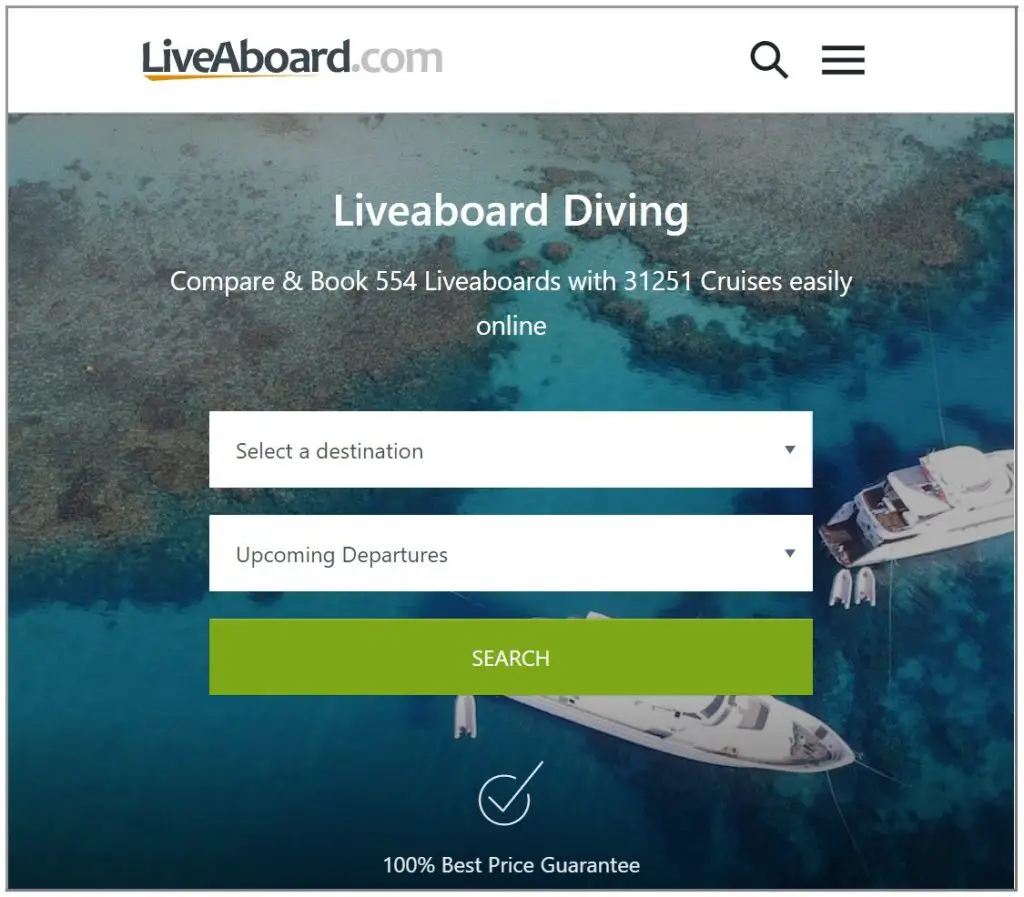
People with claustrophobia can’t dive – myth or bust?

At the start of this article on scuba diving claustrophobia, I started by saying those who suffer from severe claustrophobia may need to avoid scuba diving all together. So is claustrophobia a contraindication to scuba diving?
However, that isn’t the full picture.
I admit to being mildly claustrophobic. But because my level of claustrophobia and how I reaction is very mild. Which means it’s never affected my scuba diving.
Having said that I would never do cave diving. Cave diving would be a step too far for me. Aside from the fact that cave diving is one of the most dangerous sports you can attempt. For me it would be being totally enclosed.
But I have penetrated ship wrecks and swam through coral swim-through’s. I have also swam into small caves, which are more like extended swim through’s without a problem.
So if you are aware of your claustrophobia and your reaction is mild anxiety, then you should be okay to scuba dive. I suggest you speak with your nearest scuba diving club or training centre about learning to dive. Explain your concerns and they will help you.
Your first step to your scuba diver training normally involves diving in a swimming pool, which is very safe and shallow. However, if you are somewhere like the Caribbean your first experience scuba diving might be in open water. However, this will be on a sheltered reef and somewhere shallow.
Take it slowly and see how you react. Avoid any temptation to shoot to the surface if you suffer from claustrophobia when scuba diving. Fast ascents can be dangerous for you and those around you.
If your reaction to claustrophobia is to have a full blown panic attack, then you should probably give scuba diving a miss until you seek help with your phobia.
Tips that help claustrophobia
I want to give you a few useful tips to help with your claustrophobia when scuba diving as these may help. If you have severe claustrophobia I suggest you jump to tip number 11 below.
1. Dive mask claustrophobia
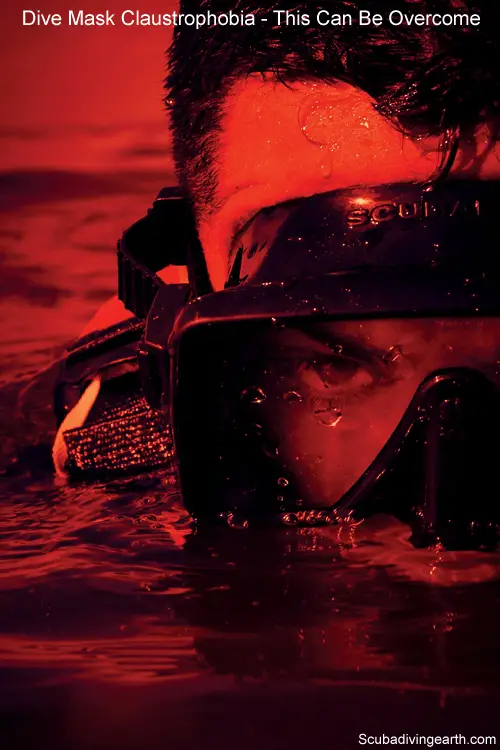
As already mentioned above, one of the toughest problems some beginner scuba divers have to overcome is wearing a mask.
So make this easy for yourself. Buy a mask that has a clear skirt. The skirt is the part of the mask that forms the main body of the mask. If this is clear and lets light through, you are less likely to feel confined within the mask.
The other mask you can get to combine with a clear skirt is either a three or four lens mask. These types of mask have more glass across the front and therefore let more light in.
You can also get low volume masks, which are smaller than the average mask. This may make you feel better about wearing a mask where the ‘confinement’ is less.
The best advise on masks, is to try the various options, and see which one feels most comfortable for you. This is in addition to checking the correct mask seal to prevent mask leak.
2. Full-face dive mask
You could go to the other extreme and buy a full face dive mask. However, these are expensive to buy, but looking at it with the view that if this stops your claustrophobia and allows you to dive without fear or anxiety, then it may be worth the investment.
A full face mask has a much larger screen or mask area, so you may find you don’t feel quite so confined as you would with a regular dive mask.
3. Find a good scuba diving instructor to help you overcome scuba diving claustrophobia
If you have this slight concern with claustrophobia, then you are better to find a good scuba diving instructor. The instructor needs to be patient, as it’s so important to take everything slower than normal.
The worst that could happen for you is for something to be rushed and for you to get into a panic situation. This may have an adverse affect on you and it could put you off diving altogether.
4. Tell your scuba diving instructor about your claustrophobia
Whilst on the subject of finding a patient scuba diving instructor, make sure you do tell them about your phobia. There’s absolutely no need to feel embarrassed about telling them.
If your instructor knows in advance, then they will be able to adapt the scuba diving training accordingly. For example, the mask clearing exercise may need to be progressed more slowly and with more baby-steps to master it.
Telling your scuba diving instructor is about being safe and always approaching scuba diving with the thought of safety in mind. If your diving instructor knows about your claustrophobia in advance of the open water training part, this too will be taken slowly, perhaps at shallower depths than normal to begin with and so on.
5. Avoid claustrophobic environments when scuba diving
If you’ve got through the training. You’ve started to build up your diving experience. And you’re enjoying your scuba diving, be careful about where you dive.
I’d suggest you avoid confined spaces, like swim-through’s, small caves or wreck penetration, as these could trigger a claustrophobic attack.
I’m not sure whether diving in very low visibility water or at night would be a good thing for someone with claustrophobia. More so the low visibility diving, as this can make you feel very closed in. This is especially true in confined spaces.
For example, you may be okay with going inside a wreck where the exit and entry points are clearly seen and full of light. However, this becomes a completely different experience where the poor visibility water obscures the light and any exit points.
Always with safety in mind, but without curbing what you do when scuba diving, the best way to find out is to try these things. Do it slowly, carefully and with your buddy nearby and with the knowledge of your fear.
6. Mind over matter and focus on your environment
Distracting your mind works really well in an anxious situation. If you are focusing on whats directly in front of you and you’re preoccupying your thoughts with interesting things, it’s much harder for your brain to focus on an anxiety.
Also, if your claustrophobia is about your mask, by taking a good look around you will help your mind realise you’re not in an enclosed or confined space after-all.
This leads nicely onto the the next tip for claustrophobia when scuba diving, which is learning to control your breathing.
7. Control your breathing if you suffer from scuba diving claustrophobia
Learning to control your breathing can help in all manner of things in your life, not least when scuba diving. It’s important that I point out the difference between controlling your breathing vs holding your breath.
You should never hold your breath when scuba diving, but it’s good to regulate and control your breathing. This will firstly help with your air consumption, but in times of stress or anxiety this will help you to calm down.
One of the best actions you should take is focusing on and controlling your breathing. It’s almost physiologically impossible not to calm down when you’re breathing deeply and slowly. This is one of the first techniques that is taught with meditation or with self hypnosis.
8. Stay up-to-date with your diving
You should always stay current with your diving. Having long gaps between scuba dives isn’t a good thing, especially if you have a propensity to be an anxious scuba diver.
If you’ve not dived for a while, let the instructor or dive master on the trip know this. Explain your lack of recent diving experience so that they know to take things a bit more slowly with you. They my even insist on a bush-up scuba dive too.
It’s always worth re-visiting your basic diver skills and know your emergency procedures too.
9. Tell your dive buddy or instructor if you have a problem with claustrophobia
If you are experiencing a problem underwater, make sure you tell your diving instructor. They can either help you to prevent the phobic feeling from escalating to a full panic attack. But also, if necessary assist you with a slow and safe ascent to the surface.
It’s better to abort a dive and be safe, than to try to be a hero and struggle through. Struggling through will not be any good for you psychologically and will leave you with these feelings of the dive. Plus, you won’t be enjoying the dive in any event, so why endure the discomfort.
Never worry about upsetting another divers enjoyment, as they’d much rather you return to the surface safely, than to end up having difficulties later.
Talking about ascents, this must be safe and it must be slow. Don’t shoot to the surface!
10. Never shoot to the surface if you panic underwater
As already mentioned, no matter what the problem you should never shoot to the surface when scuba diving.
If you are experiencing some problems, as already noted in the above tip number nine, you should notify your dive buddy about your problem. Assess the situation with them and if an ascent is the chosen course of action, do this slowly and safely.
Shooting to the surface could put you at risk of the bends or decompression sickness.
More Reading: How do I get a dive buddy? (5 easy ways to find a dive buddy)
11. Seek help from a professional therapist or highly experience scuba diving instructor
If you are finding it difficult to overcome your claustrophobia when scuba diving or if your symptoms are extremely severe and prevent you from scuba diving at all, you may need to seek help from an experienced mental health professional. Alternatively, take a look at a possible solution below.
Claustrophobia can be treated by engaging in cognitive behavioural therapy (CBT), desensitisation techniques or though using hypnotherapy.
In addition to seeking help from a metal health professional, you may also seek the help from an experienced scuba diving instructor. If you’ve had a bad experience on a scuba dive and you want to overcome this, you can spend time with an instructor in a safe swimming pool environment.
If you spend over an hour and a half to two hours of prolonged exposure to a situation, this is likely to change your response to it.
This could be to regain your confidence underwater. It will help with whatever the bad experience was that you suffered when scuba diving, but not just relating to claustrophobia. This method should apply to most bad experiences underwater.
Solution to scuba diving claustrophobia
If you associate with any of the above claustrophobia. If you would love to experience the weightlessness associated with scuba diving. It you’d love to visit the underwater world and discover the wonderful sea creatures and scenery below the surface.
But if you’re prevented from doing this due to a fear, anxiety or phobia, then please try out this ‘Panic Miracle.’
Click this link to find out more about the Panic Miracle.
The PanicMiracle is the only clinically proven drug free holistic system for treating panic attacks and general anxiety.
PanicMiracle
12. Don’t attempt decompression stop diving if you have severe claustrophobia
Talking about seeing a therapist, brought on the idea of this next tip. Which is to not do a decompression stop dive.
Decompression stop diving is adding risk to your dive profile. Once you go into decompression stop time, you have no choice but to carryout the decompression stops. Well you do have a choice, but the alternative isn’t a good one.
If you don’t carryout your decompression stops, you may end up with decompression sickness and in a hyperbaric chamber. You may find that in addition to your decompression problems, the claustrophobia in the chamber may cause you problems too.
The problem for a scuba diver that has a propensity to panic when scuba diving or to suffer from something like claustrophobia, is that once you enter decompression stop time, you can no longer go straight to the surface. When I say straight to the surface, I mean slowly and safely, but without the need for required decompression stops.
Keeping within a no stop time limit is safer and puts less risk on your dive. Even if it’s just a psychological one. You may suddenly feel anxious about the inability to go straight up without having to stop. The feeling on being ‘out of control‘ may trigger a phobic reaction.
What other phobias can affect scuba diving?
Whilst on the subject of anxiety and panic attacks, I thought it worth exploring some of the other phobias that may affect your decision to scuba dive or not. The most common one I come across and is the main subject of this article, and that’s claustrophobia.
The other phobias would include the following:
Selachophobia or the fear of sharks
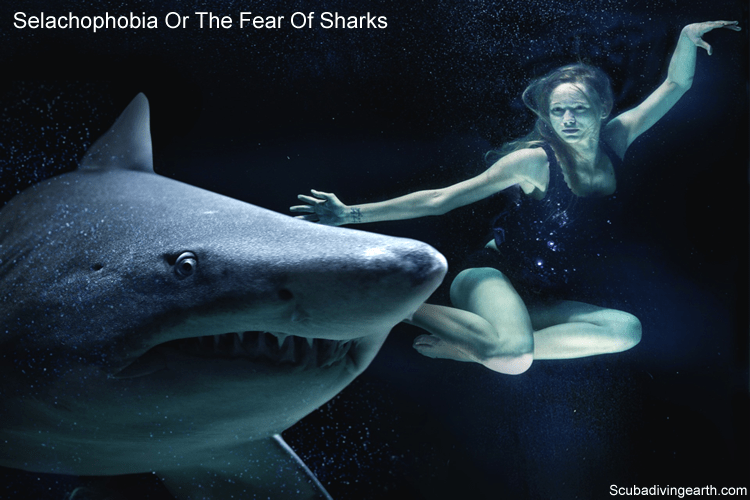
Probably one of the second most common phobias or fears for scuba divers. One that may prevent someone from scuba diving in the first place, is selachophobia or the fear of sharks.
I recall a scuba dive in the Bahamas, where as usual I’d asked the scuba master if we could dive where there’s a good chance of scuba diving with sharks.
After I’d booked the dive, I got talking to one of the other guests at the hotel. Where we were staying, there was a single mother who wanted to dive, but couldn’t as she was on her own.
After talking and getting to know her, we agreed in the end that my wife would look after her children, whilst I went diving with her. However, when I explained to her that I’d requested a shark dive, she wasn’t so enthusiastic after-all.
However, despite her initial fears, and with a bit of a pep-talk from me, she agreed to go. She joked about using me as her shield to hide behind. In the end she thoroughly enjoyed the dive and we saw many sharks that pretty much followed us around on the whole dive.
I’m not saying that this is how you may cope with this situation. Plus your fear of sharks may be more extreme, however, the example shows that sometimes fears can be more than they are made out to be. Sometimes by facing your fears, you can get through them and in the process you are desensitised to the situation.
Shark diving in South Africa
Another story about sharks and what not to do, was from when I was in South Africa. The dive guide was explaining about how a few weeks prior, one of the girls in the dive party panicked on seeing a Great White Shark. As a result she shot to the surface, mistake number one!
When she got to the surface she began to frail around and splash uncontrollably, mistake number two!
Unfortunately for this lady, she attracted this Great White Shark, simply due to her behaviour in the water.
The shark took a large bite from her leg and she died. The irrational fear put her in danger, when the sensible thing was to stay calm, watch the shark and enjoy the experience. Then at the end of the dive ascend slowly and calmly and all would have been well for this unfortunate scuba diver.
More Reading: Where is the best place to cage dive with sharks (5 Best great white spots)
This is what the rest of the dive party did, and they were all safe. But obviously traumatised by seeing this lady get attacked.
When you look at what happened here; she created the outcome she feared the most. It became a self-fulfilling prophecy.
Bathophobia or the fear of depths may prevent you from scuba diving
Bathophobia is an exaggerated or irrational fear of depths or deep things. This can include lakes, the sea or oceans, but can also include long hallways.
Bathophobia doesn’t only potentially affect would-be scuba divers, but also impacts swimmers who dislike swimming over deep water. This can include the fear of not seeing the bottom of water.
Scuba diving in the UK or similar places, where the visibility means you can’t see the bottom on your entry to the water, would be a struggle for people who suffer from a phobia like bathophobia.
If you have bathophobia, and you want to try scuba diving, I suggest you seek professional mental health advice on resolving your anxiety issue first.
Thalassophobia or the fear of the sea, ocean or of sea travel
What is a Thalassophobia? Thalassophobia is an intense and persistent fear of the sea or of sea travel.
Thalassophobia can include fear of being in large bodies of water. It is a fear of the vast emptiness of the sea which would include vast oceans.
This phobia can also include a fear of the distance from land, which of course when scuba diving from a dive boat, this will be a consideration.
As with the other phobias, if this is your fear and it’s holding you back from enjoying something that you could well get great enjoyment from, seek professional help with your phobia.
Aquaphobia or the fear of water
The last phobia I’m going to end on is aquaphobia, which is the fear of water itself.
If you are an aqua-phobic person, then you would struggle with scuba diving that’s for sure.
However, like all phobias, this too can be treated. All phobias are the same in that they are an irrational fear.
Treatment for any phobia will essentially be the same, but simply for a different fear each time.
How to get over your fear of scuba diving
As already mentioned above, you may wish to consider ‘PanicMiracle.’ This powerful system can cure your fears or phobias, which will be contributing to your fear of scuba diving. These will be be holding you back.
Click this link to find out more about the Panic Miracle.
The PanicMiracle is the only clinically proven drug free holistic system for treating panic attacks and general anxiety.
PanicMiracle
I hope you enjoyed this article about scuba diving claustrophobia
I’d love to hear from you. Tell us about your adventures of diving and snorkeling, in the comments below. Please also share your photos. Either from your underwater cameras or videos from your waterproof Gopro’s!
If this article hasn’t answered all of your questions. If you have more questions either about snorkeling or scuba diving (or specifically about scuba diving claustrophobia), please comment below with your questions.
There will also be many more articles about scuba diving (and snorkeling) for you to read and learn about these fabulous sports.
Have fun and be safe!

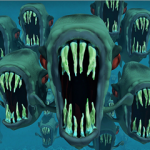
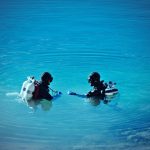
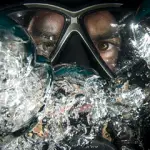
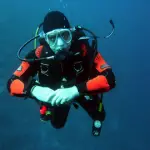
very interesting. Thanks for posting it
I’m generally not a good swimmer, swimming in deep water pool scares me a lot, I don’t trust my stamina, I know I’ll get tired way too quickly, I’m very anxious person in general, and claustrophobic. Yet I’m very adventurous, I like to experience new things.
I’ve just recently returned from a holiday, and i thought I’d try scuba diving, and what a bad idea it was. I was really really terrified that I had a sudden panic attack under the water and felt i was dying, i took the mask off my mouth under the water, i lost control of my breathing, all i could see is bubbles and my instructor (who was very experienced) handled everything with extreme calmness. It was just horrible, I don’t know what it was, too many bad thoughts, the fact I’m under the surface and can’t escape, is it because I’m fearful of the deep sea? is it cuz I couldn’t trust my ability to breath from my mouth? is it because of the mask? I don’t mind putting my head under the water in a swimming pool. I couldn’t do the same in the sea 🙁
I know I’ll have to try again, it would be a loss to not experience the sea and enjoy it like everyone else 🙁
Hello Hannah,
Thank you for your comment and I’m sorry to hear about your bad experience scuba diving. Whereabouts were you on holiday and where was the dive when you got scared?
I’d also be interested to find out how deep you were at the time too.
I’m glad however that everything turned out okay and that you’re on my scuba blog commenting to tell the tale, as it were.
I’m also pleased to hear that you’re happy to give scuba diving another go, but you may wish to try it out in a swimming pool first. It would be much safer to begin scuba in a very safe environment, like an enclosed swimming pool, which for you is a comfortable place to be (i.e. it’s not deep!).
Starting your scuba diving in a place you feel safe and comfortable with, will build your confidence first. This is before the added ‘fear factor’ of the deep sea is introduced to you once more!
The fear of water is quite common and is known as Thalassophobia, which is more a fear of large bodies of water and the fear of distance from land.
So actually for you it’s probably Bathophobia, which originates from the Greek word ‘Bathios’ which means deep or depth. The second part ‘phobia’ or ‘Phobos’ which is Greek for aversion, dread or fear. I hope you don’t mind my suggesting to you that you may want to seek therapy for help with your fears and phobias.
Alternatively, why not try out the PanicMiracle mentioned above in my article. I wouldn’t want you to experience what you experienced on holiday again. The first time you managed to come away unhurt, the next time things may go wrong further, not only for you but also for your dive buddy.
I note you are also claustrophobic, so this isn’t a good combination with your fear of deep water too.
In reality there’s no reason why you should fear the sea. But as suggested above in my comment, a big part of you overcoming these fears will begin with feeling safe scuba diving first, but in an environment you feel safe in, i.e a shallow swimming pool.
The scuba diving in a swimming pool for you, represents the ‘getting back on the horse’ part of dealing with this problem. Certainly the way I see it.
However, your underlying fears and phobias will still be there for you, i.e your fear of deep water Bathophobia and your fear of enclosed spaces claustrophobia.
I can see you feeling happy with your scuba diving in a shallow swimming pool. Then for you to face a scuba dive in the sea, or more importantly deep sea, when all of a sudden your fears and phobias will loom big and large once more. As I said and I hope you don’t mind me saying once more, to get over this part or your problem you have with scuba diving in the sea, I do feel you need to seek phobia therapy or use another system (like the PanicMiracle) to help you.
As you say, it would be a shame to miss out on the underwater world you’ll get access to as a scuba diver. Scuba diving is great when you get to experience the weightlessness scuba diving offers and the underwater creatures you get to see – my favourites are sharks, turtles and manta rays.
I hope this helps. But if you have any other thoughts or questions please don’t hesitate to ask.
Hello Russell.
My name is Juliana. I really like your article about scuba diving & anxiety. I was very very anxious about scuba diving, but I really wanted to experience it. I did two attempts for discover scuba diving with “regular” dive center & it was a really bad experience. They rushed me through it without any empathy for my state of mind & for my fears. But it did not want to give up because i really fall in love with the ocean underwater would while snorkeling.
So I searched the internet and found a very specialized dive school in Amed Bali Indonesia called NO FEAR DIVING . It was all about finding the right scuba diving instructor. In this case his name was Oliver Radosav. He is also a therapist for people with mental issues. I did a private one on one coaching lesson with him & all changed. My fear faded away & I found so much self confidence within this customized training scuba training that I could even complete my PADI open water course. No i´m diving on regular bases & I´m already rescue diver with over 100 logged dives. I think No Fear Diving in Amed Bali is an address the should be know by anyone who seeks overcoming their fears and becoming a scuba diver.
Hello Julia, thank you for your comment and for sharing your story about overcoming your fear of scuba diving. Any good diving instructor needs to have empathy and patience with their students. Happy scuba diving!! 🙂